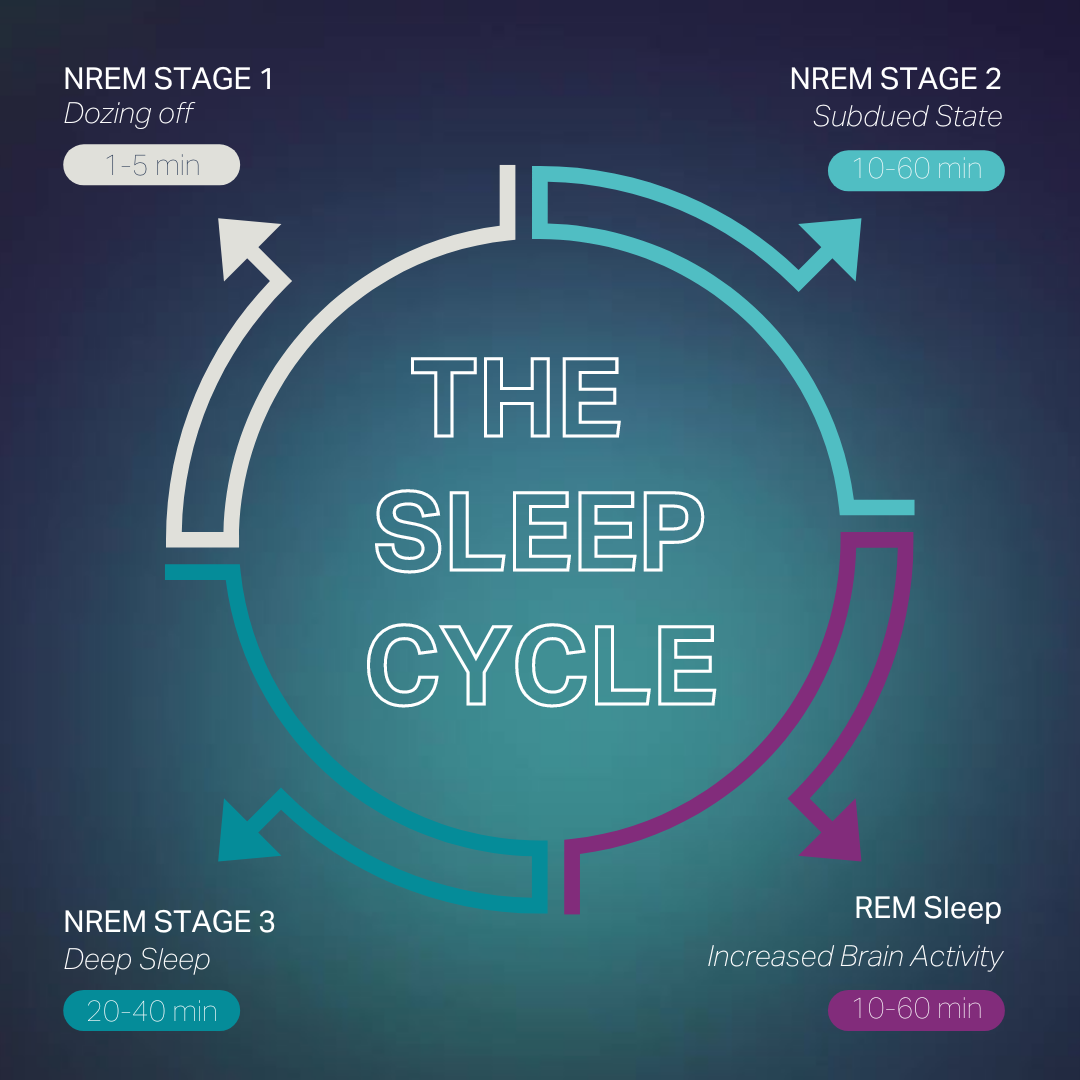Understanding the Benefits of Each Stage of Sleep
Sleep cycles are composed of different stages of sleep that are characterized by distinct patterns of brain activity and physiological changes. A typical sleep cycle lasts around 90 to 110 minutes and is composed of four stages of non-REM (NREM) sleep and one stage of rapid eye movement (REM) sleep. Here are the benefits of each stage of sleep:
NREM Stage 1: This is the transition stage between wakefulness and sleep, during which the brain slows down and the muscles relax. This stage usually lasts for only a few minutes, and it is characterized by alpha and theta waves in the brain. The benefits of this stage are not well understood, but it is believed to be important for the initial relaxation of the body and mind.
NREM Stage 2: This is a deeper stage of sleep, during which the body temperature drops, the heart rate slows down, and the brain produces bursts of rapid brain waves known as sleep spindles and K-complexes. This stage usually lasts for around 20 minutes, and it is important for consolidating memories and processing information from the day.
NREM Stage 3: This is a deep sleep stage, also known as slow-wave sleep, during which the brain produces slow delta waves. This stage is important for physical restoration, as it is when the body repairs and regenerates tissues, muscles, and bones. Growth hormones are also released during this stage.
NREM Stage 4: This is the deepest stage of sleep, also known as delta sleep, during which the brain produces predominantly delta waves. This stage is important for overall restoration and recovery, as it is when the body repairs and regenerates. It is also believed to be important for immune function, and a lack of this stage of sleep can lead to an increased risk of infection.
REM Sleep: This is the stage of sleep during which the eyes move rapidly, and dreaming occurs. This stage is important for emotional regulation, memory consolidation, and creativity. It is also thought to be important for learning and problem-solving. During REM sleep, the brain is highly active and uses a lot of energy.
Ready to get your sleep on track? Fill out our referral form and we’ll be in touch within 24 hours to have your sleep test delivered to your front door as soon as possible.
#SleepEfficiency #SleepApnea #SleepTest #OHIP #Ottawa #Sleep #SleepBenefits #OttawaHospitals
Sources:
The National Sleep Foundation: https://www.thensf.org/
Sleep Foundation: https://www.sleepfoundation.org/
American Academy of Sleep Medicine: https://aasm.org/


